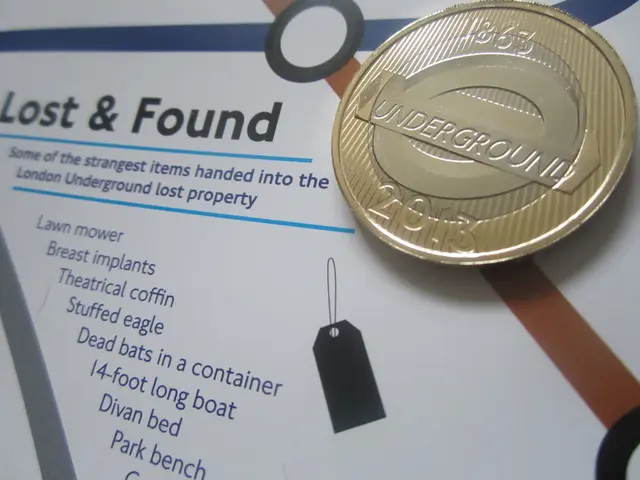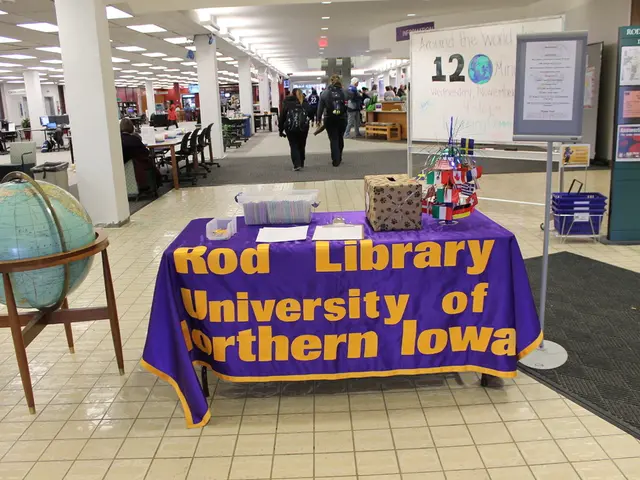County of New Jersey and blockchain company join forces to transition $240 billion worth of property deeds into a digital format.
In a groundbreaking move, the blockchain firm Balcony has entered into a partnership with Bergen County, New Jersey, to digitize 370,000 property deeds worth $240 billion in real estate value. This ambitious project, touted as the largest blockchain-based deed tokenization in U.S. history, aims to streamline and secure the recordkeeping process for county residents.
Using the Avalanche blockchain, Balcony will create a fully digitized ledger of titles across Bergen County's 70 municipalities. This initiative, expected to cut deed processing time by 90%, promises to bring significant benefits to the county's property market. Upon completion, any resident will be able to trace the history of their property from beginning to current on the registry, providing transparency and security.
John Hogan, Bergen County Clerk since 2012, believes the initiative will simplify and secure the recordkeeping process for county residents. The current property record systems, he states, are outdated and vulnerable to cyber threats. With the rise in generative AI, fraudulent documents can be fabricated quickly, making them indistinguishable from the real thing. The use of blockchain technology, on the other hand, offers a shared, tamper-proof source of truth that can revolutionize processes that rely on trust, transparency, and secure recordkeeping.
Beyond digitizing property deeds, blockchain technology has wide-ranging applications across various sectors. In insurance, for example, blockchain enhances transparency and reduces fraud by securely recording claims and automating processes using smart contracts. This accelerates claims settlement and decreases reliance on intermediaries.
In the entertainment industry, blockchain helps verify ownership and usage rights of digital art, music, and videos, preventing piracy and enabling automated royalty payments to creators. In government and public services, blockchain can create secure, transparent voting systems that protect election integrity and reduce fraud.
In education, blockchain guarantees tamper-proof, easily verifiable records, reducing fraud. In healthcare and pharmaceuticals, blockchain secures patient records and controls access among providers, insurers, and labs, while tracking pharmaceutical batches from production to distribution.
In enterprise identity management and security, blockchain provides robust methods for managing digital identities, secure login credentials, and employee records, lowering identity fraud risks and improving security for businesses.
The benefits of blockchain technology extend beyond property deed digitization. Ava Labs' Chief Strategy Officer Luigi D'Onorio DeMeo sees significant potential for blockchain technology in areas beyond deeds, such as identity verification, supply chains, licensing, and financial settlement.
By leveraging blockchain’s immutable, decentralized ledger, these applications share key improvements: improved security through tamper-resistant data and cryptographic protections, greater transparency with shared, auditable ledgers accessible to authorized parties, enhanced efficiency via automation with smart contracts reducing manual, time-consuming processes and intermediaries, fraud reduction through immutable record-keeping and real-time verification capabilities, and increased accessibility by democratizing asset ownership and streamlining credential verification.
This partnership between Balcony and Bergen County marks a significant step towards a more secure and efficient future, not just for real estate, but for a wide range of industries. The potential for blockchain technology to transform the way we interact with data, assets, and services is immense, and this initiative is a testament to that potential.
[1] Allianz Exploring Blockchain-Based Claims Management (https://www.reuters.com/article/us-allianz-blockchain-idUSKBN1YF0J8) [2] Blockchain-Based Streaming Services (https://www.forbes.com/sites/forbestechcouncil/2020/07/24/how-blockchain-streaming-services-can-revolutionize-the-music-industry/?sh=756f4c42651d) [3] Blockchain and Real Estate Tokenization (https://www.forbes.com/sites/forbestechcouncil/2020/06/30/blockchain-and-real-estate-tokenization-the-future-of-real-estate-investment/?sh=4e00e1c562c6) [4] Blockchain in Healthcare and Pharmaceuticals (https://www.forbes.com/sites/forbestechcouncil/2020/06/25/blockchain-in-healthcare-and-pharmaceuticals-the-future-of-patient-data-management/?sh=5e3c074d4d2d)
- Given the success of the blockchain-based deed tokenization project in Bergen County, there might be opportunities for further exploration of blockchain technology in other sectors, such as finance, where secure, tamper-proof, and transparent record-keeping could have significant benefits.
- In line with the potential shown by the partnership between Balcony and Bergen County, the application of blockchain technology in finance could revolutionize processes that rely on trust, transparency, and secure recordkeeping, further streamlining and securing various financial operations.




